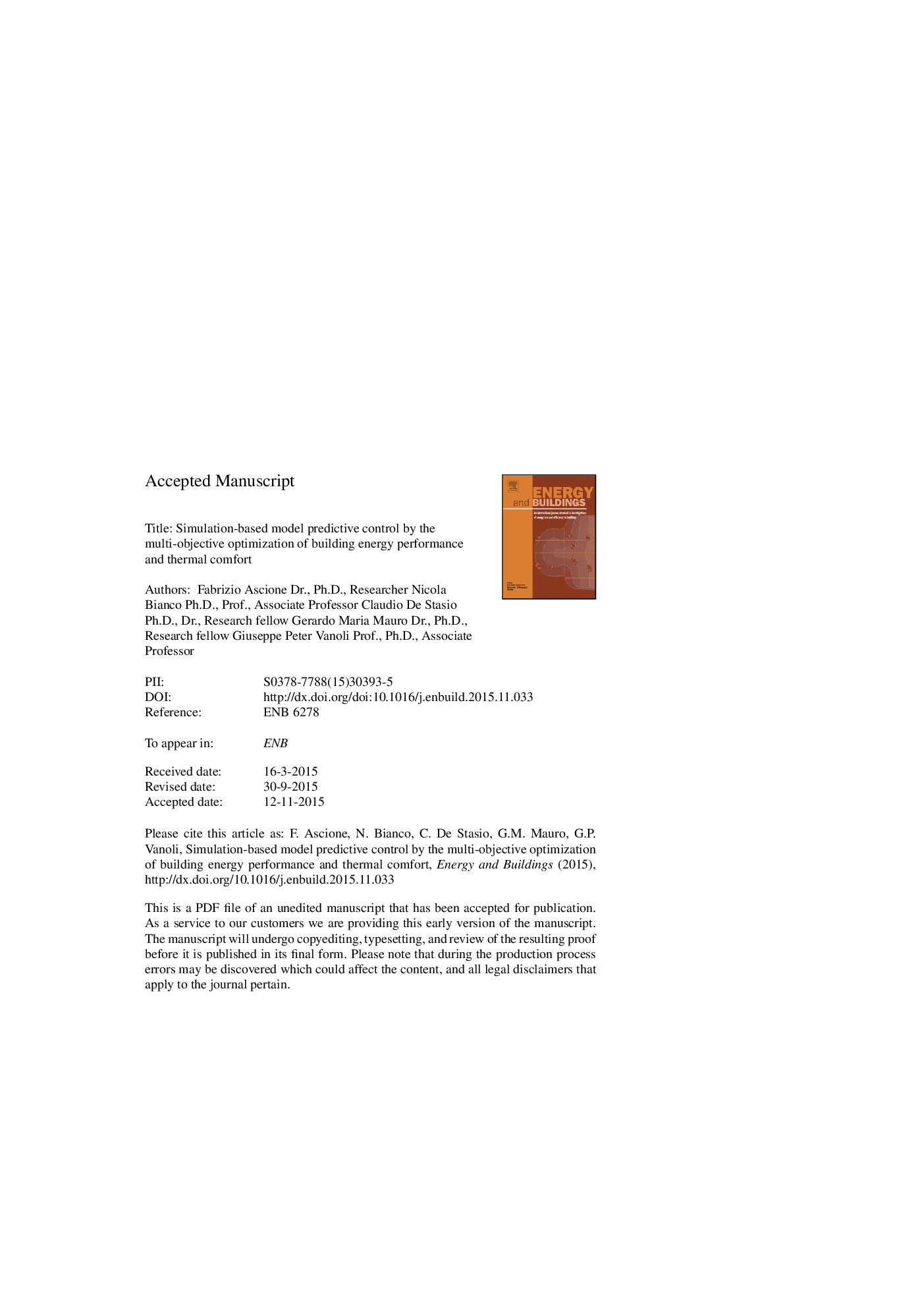| Article ID | Journal | Published Year | Pages | File Type |
|---|---|---|---|---|
| 6730784 | Energy and Buildings | 2016 | 37 Pages |
Abstract
Efficient HVAC devices are not sufficient to achieve high levels of building energy performance, since the regulation/control strategy plays a fundamental role. This study proposes a simulation-based model predictive control (MPC) procedure, consisting of the multi-objective optimization of operating cost for space conditioning and thermal comfort. The procedure combines EnergyPlus and MATLAB®, in which a genetic algorithm is implemented. The aim is to optimize the hourly set point temperatures with a day-ahead planning horizon, based on forecasts of weather conditions and occupancy profiles. The outcome is the Pareto front, and thus the set of non-dominated solutions, among which the user can choose according to his comfort needs and economic constraints. The critical issue of huge computational time, typical of simulation-based MPC, is overcome by adopting a reliable minimum run period. The procedure can be integrated in building automation systems for achieving a real-time optimized MPC. The methodology is applied to a multi-zone residential building located in the Italian city of Naples, considering a typical day of the heating season. Compared to a standard control strategy, the proposed MPC generates a reduction of operating cost up to 56%, as well as an improvement of thermal comfort.
Keywords
Related Topics
Physical Sciences and Engineering
Energy
Renewable Energy, Sustainability and the Environment
Authors
Fabrizio Ascione, Nicola Bianco, Claudio De Stasio, Gerardo Maria Mauro, Giuseppe Peter Vanoli,
